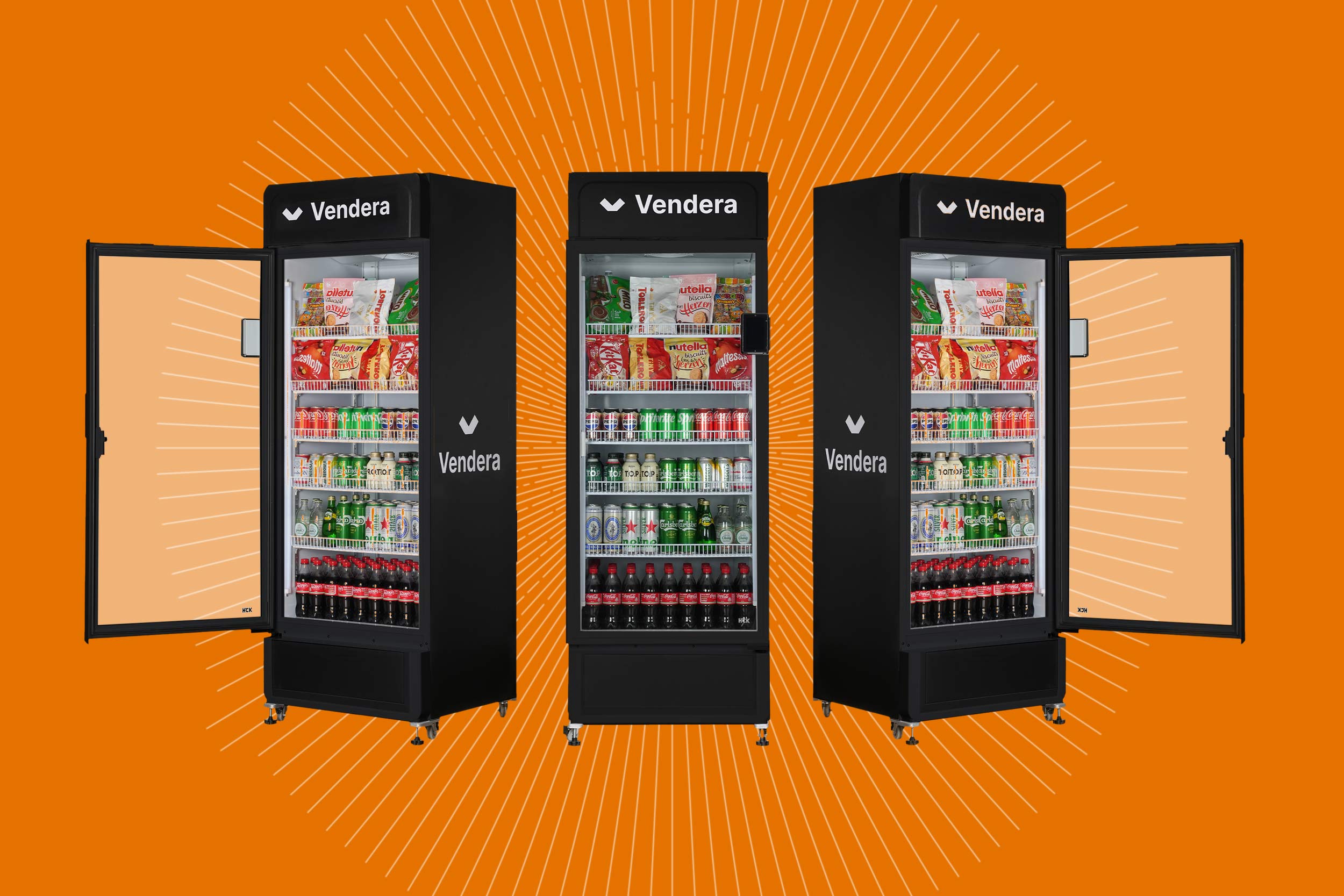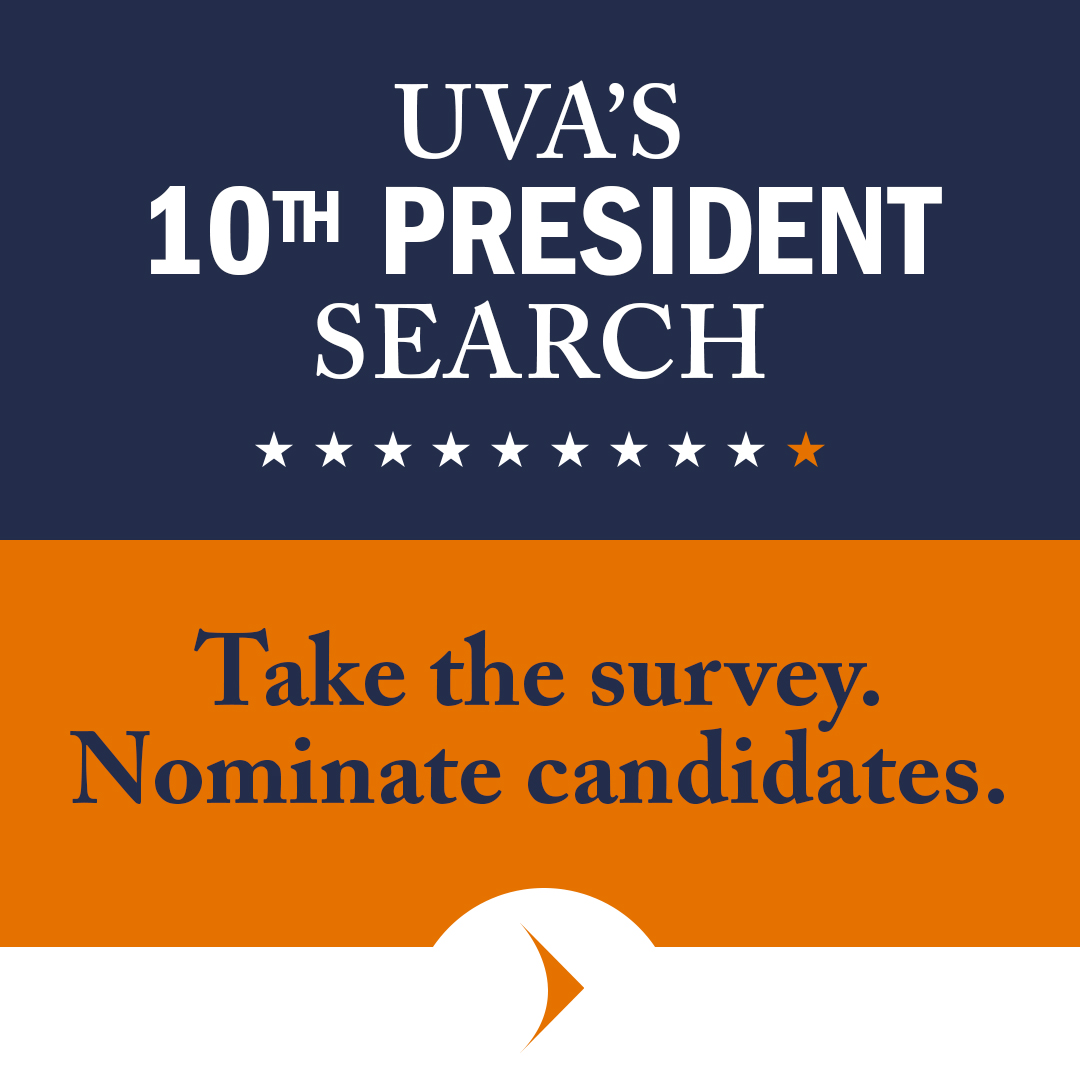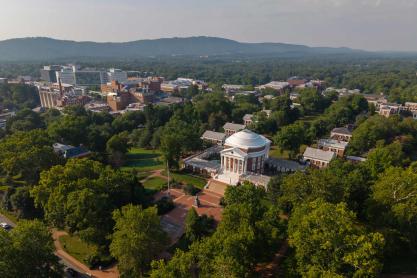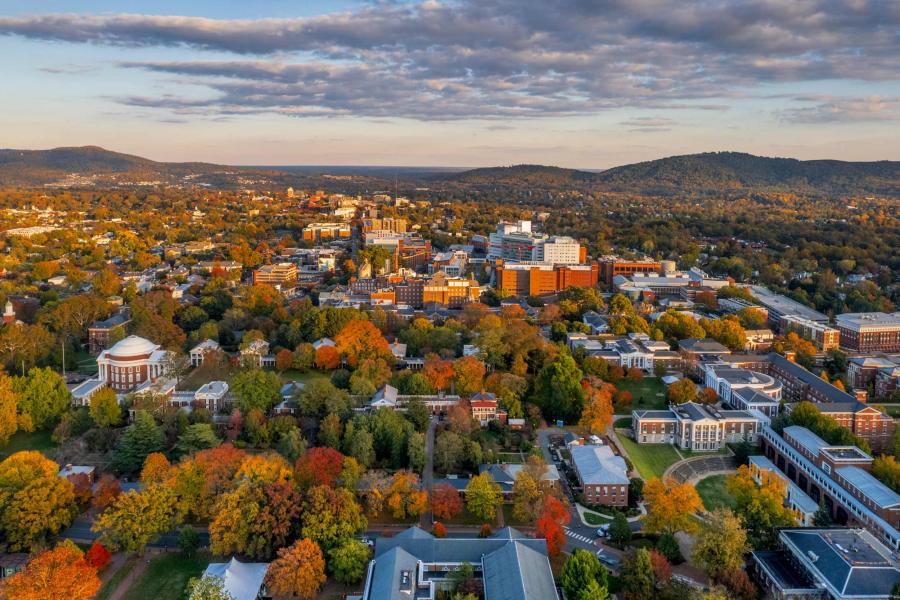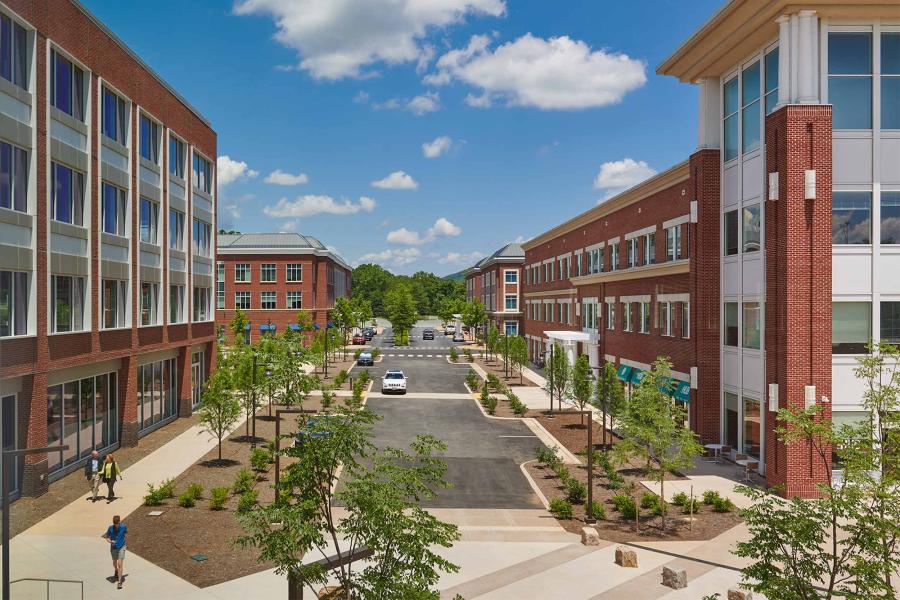Although he’s created a reimagined version of a vending machine, University of Virginia alumnus Kenneth Lin struggles to name his go-to snack. Whether it’s a Snickers bar, a pack of Sour Patch Kids or an Uncrustables sandwich showing up on the display in his artificial intelligence-powered dispenser, the craving wanes as soon as he sees it.
“I never want to touch any of the snacks anymore,” Lin said. “I’ve already had too many of them.”
Lin is a 2019 McIntire School of Commerce graduate and the CEO and founder of Vendera, a vending machine company that uses advanced technology to eradicate many of the issues Lin, himself, faced when dealing with traditional models of the appliance while working in real estate management.
The pain points ranged from constantly fixing faulty parts – like a credit card reader or a wire rack – to overstocking products.
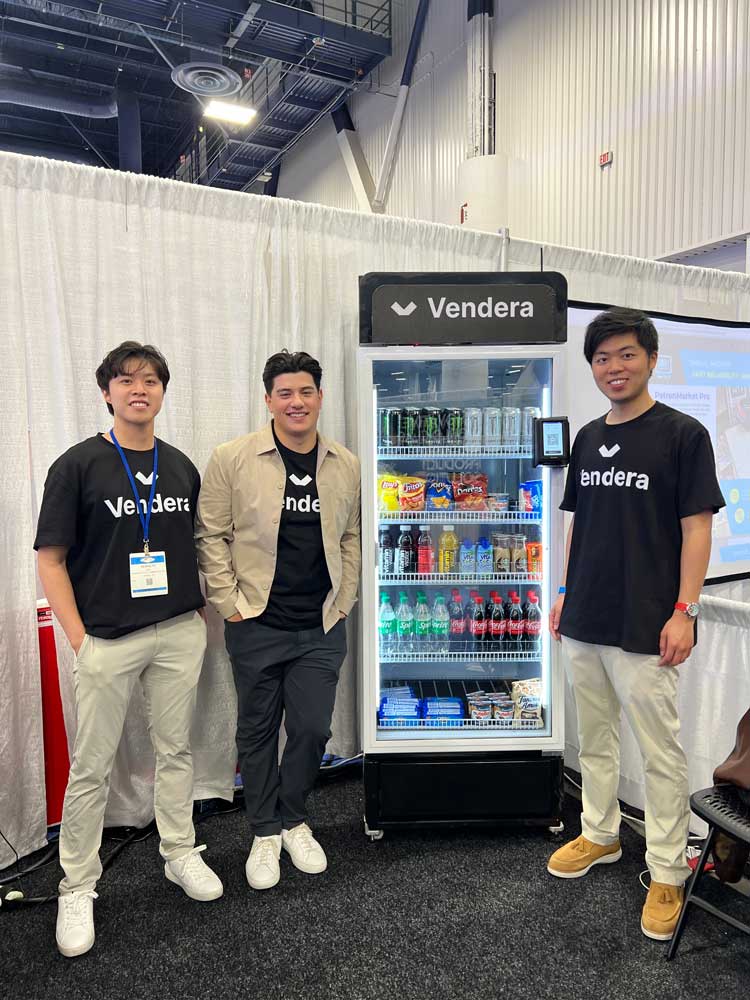
From left to right, UVA alumni Alfred Udquim, Auston Wallace and Kenneth Lin display their Vendera machine. The Class of 2019 trio met at the McIntire School of Commerce and are now running a startup business together. (Contributed photo)
“I had a bunch of those Uncrustables because you always had a ton of leftovers,” Lin recalled. “If you don’t want to waste them, where can they go beside your belly? I would have to go restock 100-something machines when we first started. It was crazy.”
With Vendera, which he runs alongside his fellow UVA Class of 2019 grads Alfred Udquim (chief financial officer) and Auston Wallace (chief product officer), he’s no longer tasked with that kind of chore as the company licenses Vending Management System software to optimize inventory. They tout their product, which recently secured significant investor funding at the McIntire School’s Galant Challenge, as a model for the future of a segment known as “unattended retail.”
Lin, who’s based in Dallas, said there are 288 Vendera machines in the field, from as far west as California to locally in Portsmouth, Virginia Beach and Fredericksburg, with around 500 in inventory.
Unlike typical vending machines, Vendera doesn’t require customers to identify the label for their preferred snack, punch in that letter and number combination – say, “A2” – and then hope the item falls cleanly to the bottom of the machine, where they can receive it.
Vendera functions more like a smart cooler – with built-in cameras – that is unlocked with a credit card, allowing the customer to grab what they want. AI models track the products removed in real time and automatically charge the customer, creating a seamless grab-and-go experience.
“As an end user and as an end customer, it makes it so much easier to buy more things,” Wallace said. “The barrier to getting multiple products is super low, so it’s a lot easier for me to grab multiple things and spend more money. It’s a lot easier for me to grab something for my friend, because they don’t have to stand behind me in the line and do the whole button-mashing thing again.”
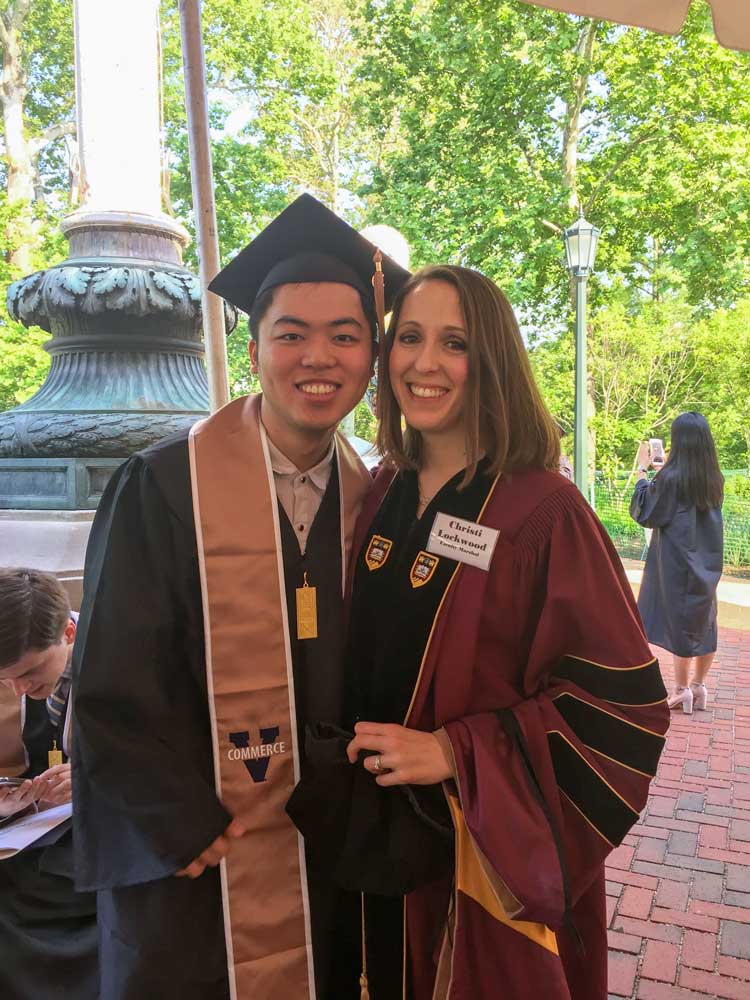
Lin poses with McIntire School professor Christi Lockwood on his graduation day from UVA in 2019. He credits UVA for instilling in him the structure that’s helped his early success as an entrepreneur. (Contributed photo)
Lin said Vendera, which debuted at a candy factory in Dallas in 2023, made $400,000 in revenue last fiscal quarter.
“The reason why I started Vendera is because this is a boring business,” Lin said. “This is a business that’s been producing cash for a long time, for decades, and we’re just making it even more profitable.”
Vendera’s research found 10% to 15% of the 8 million vending machines in the United States are replaced annually due to wear and inefficiency – a gap Lin saw as a perfect entry point into the industry. Udquim and Wallace were sold on joining their friend in the venture after observing Vendera’s machine in action in the back of an H&M clothing store.
“I was able to interact with the customers of the vending machine, the employees of that H&M,” Udquim said. “I asked them questions to see if that's something that they’d utilize on a day-to-day basis. And I found out that yes, for a lot of them, they would take the budget that they would have for their lunches, and it would go directly toward these machines.
“So being able to see firsthand not only the product, but also how customers use it on a day-to-day basis, that really stuck with me.”
The company name, Wallace said, represents the space they’re in – vending – while “also keeping it ambiguous” as they desire to expand their product to airport kiosks or stadiums.
“Basically anything that fits into a cooler is an opportunity for us to be in the business of,” Wallace said, “not just specifically vending machines.”
